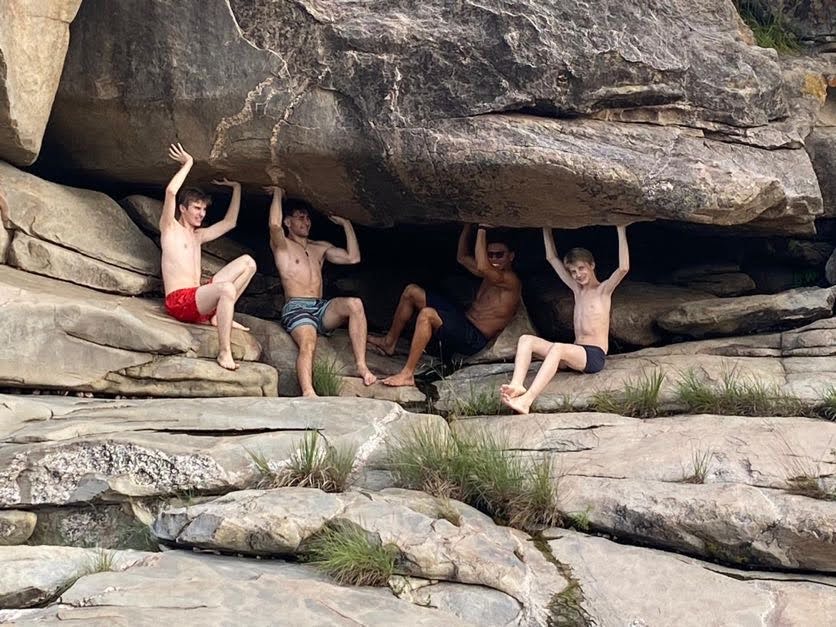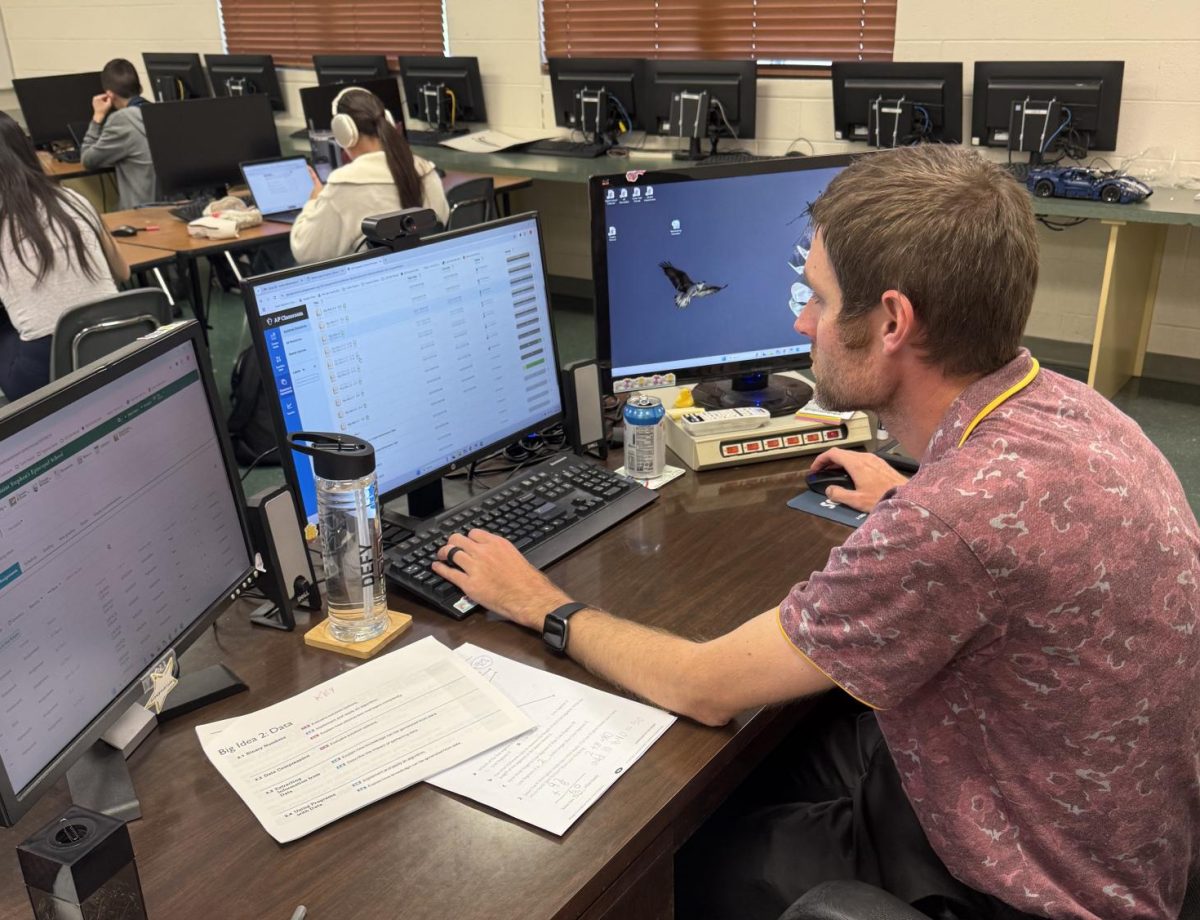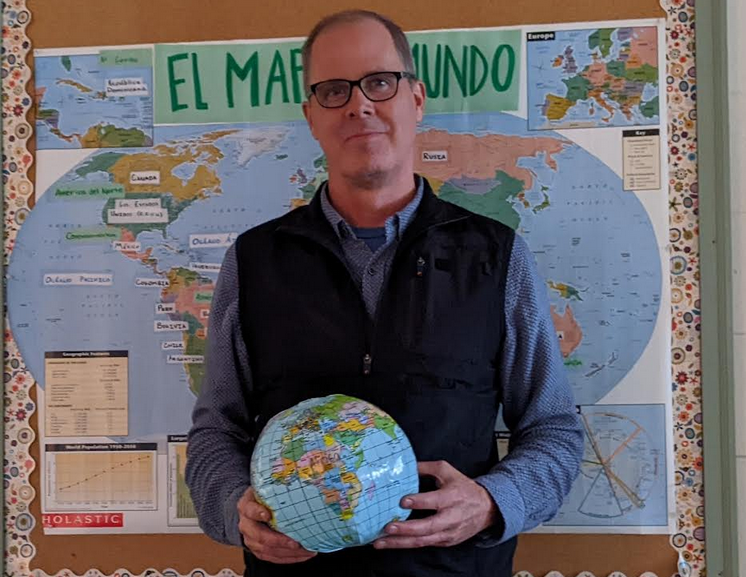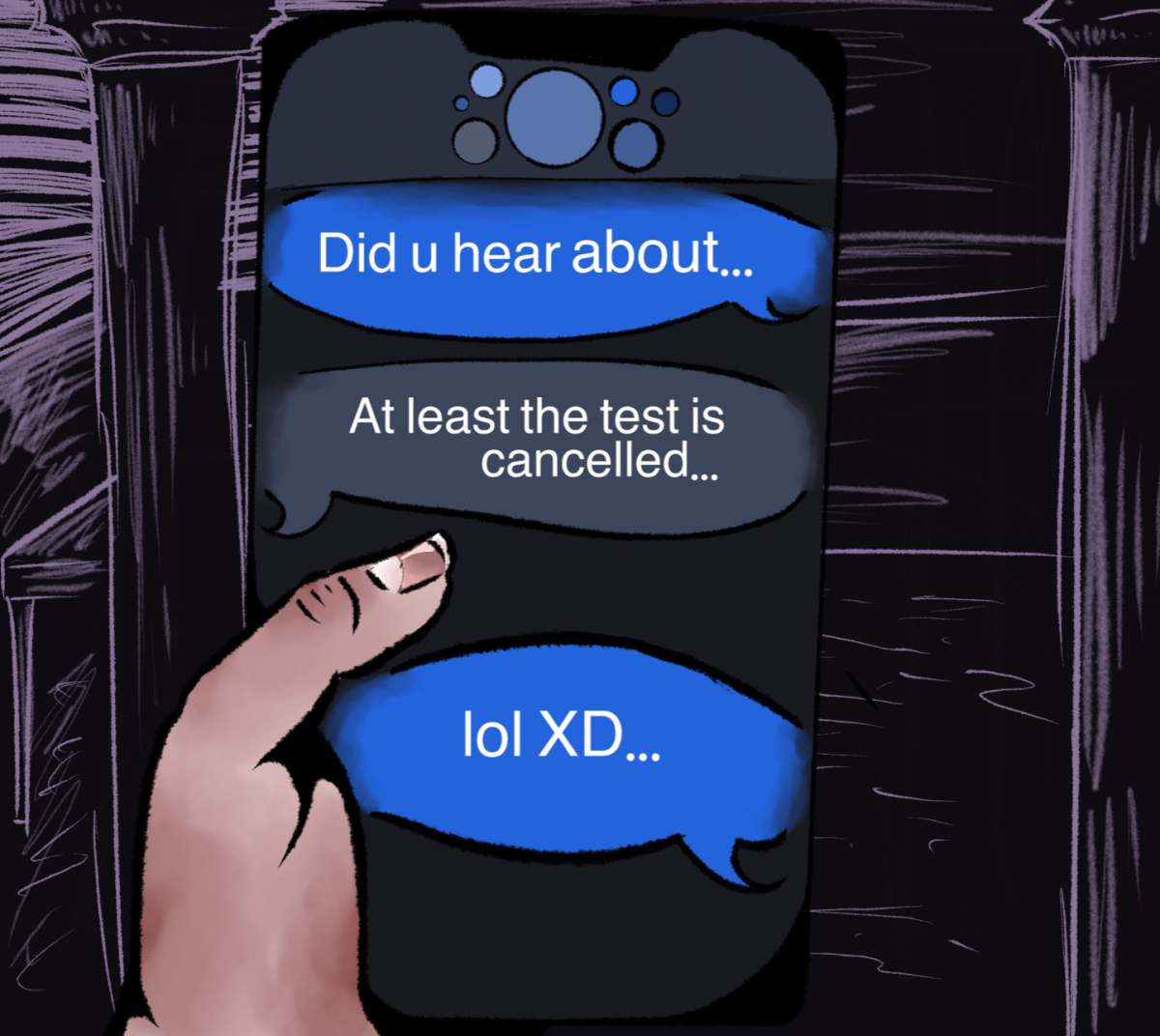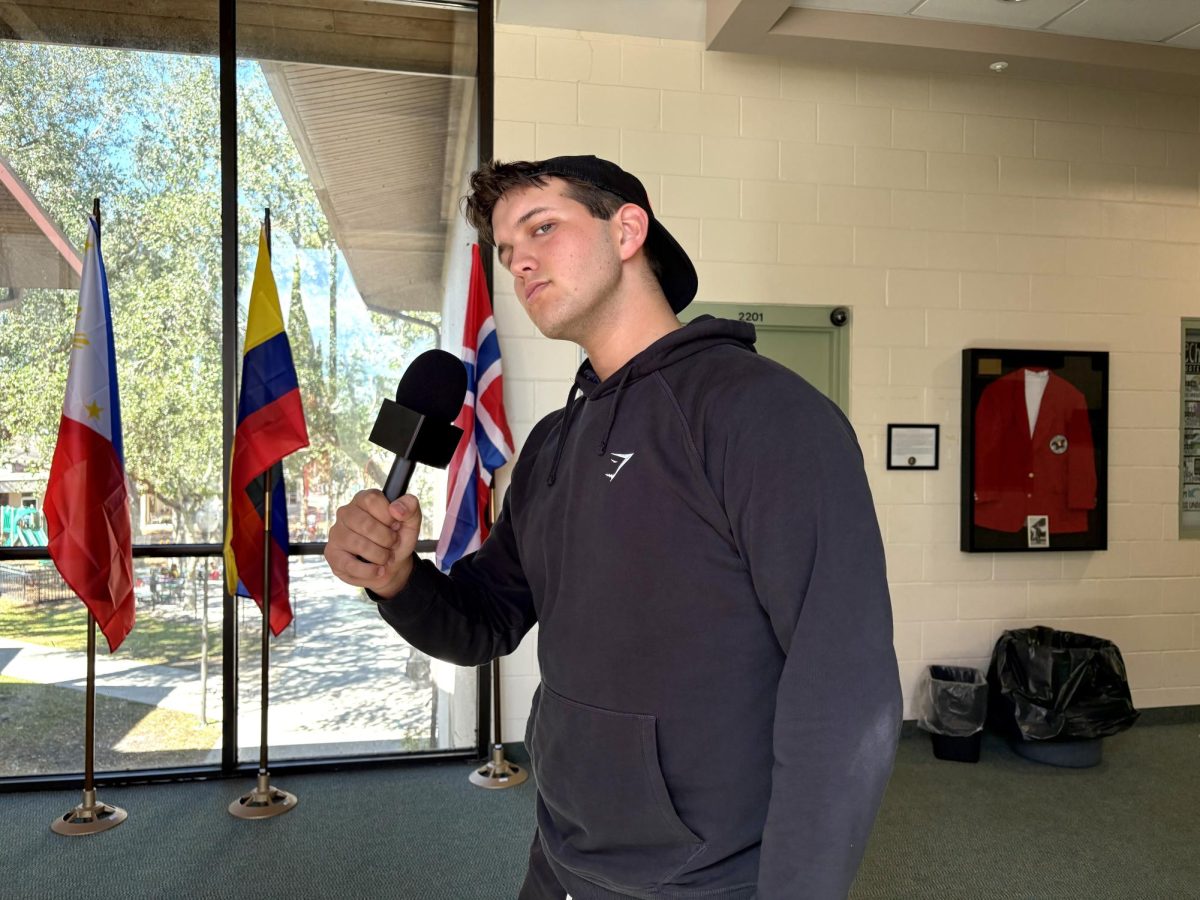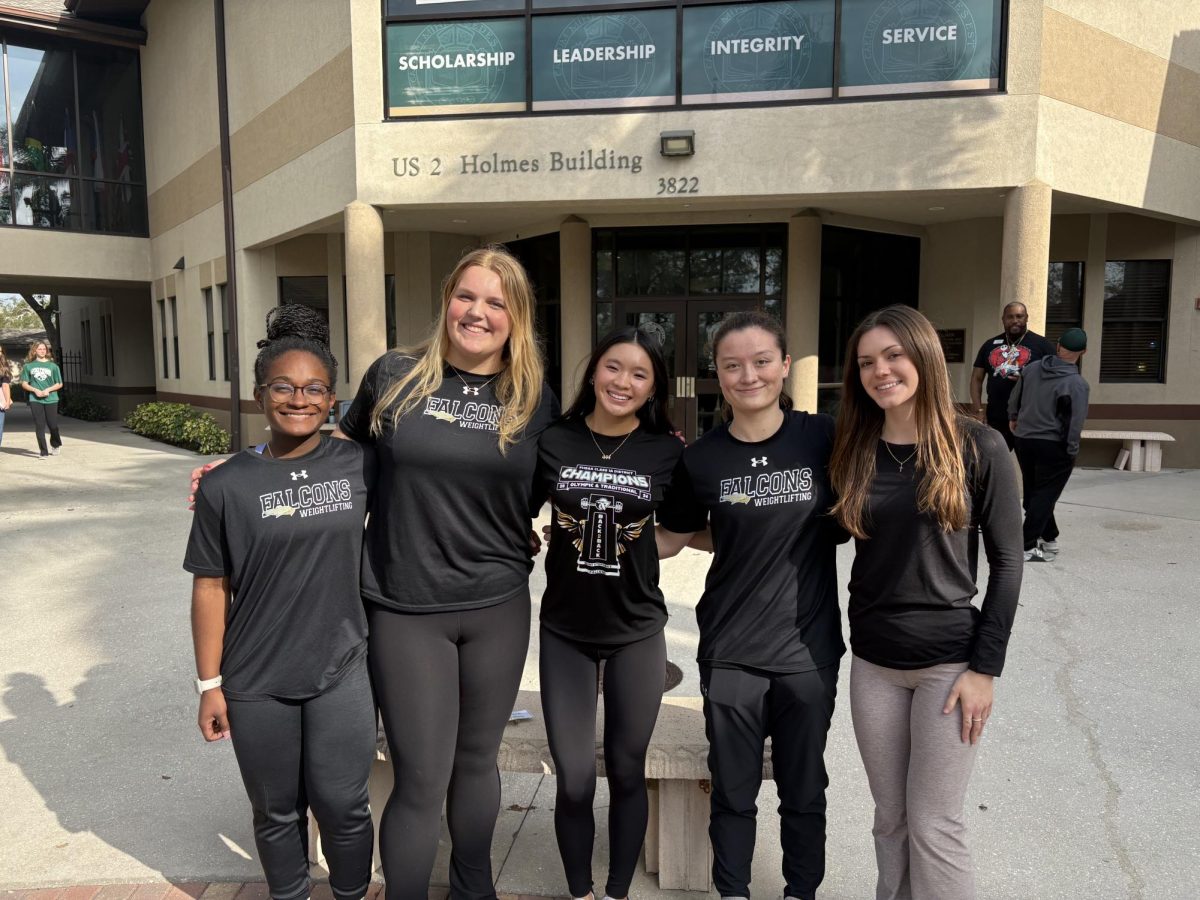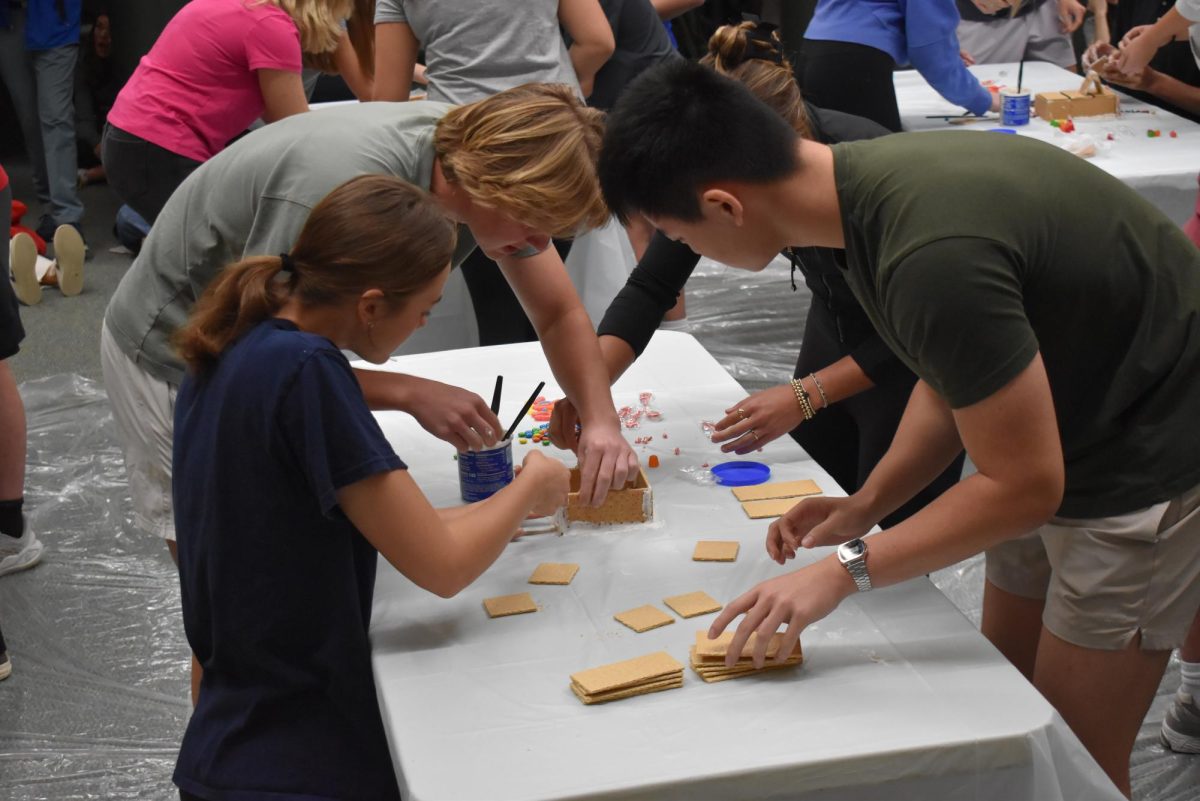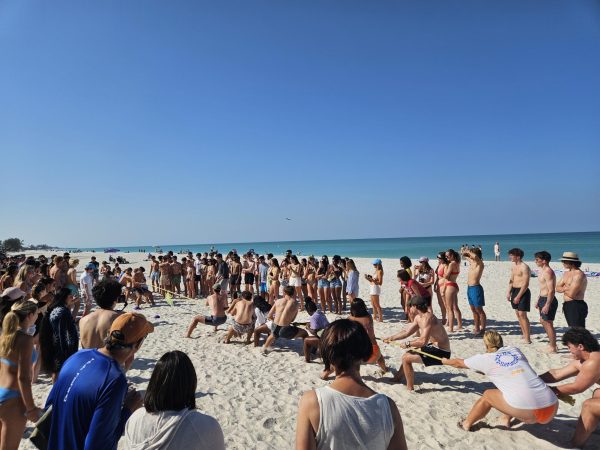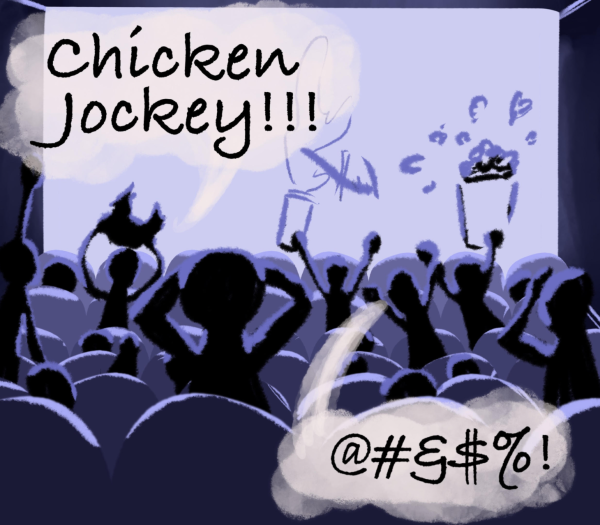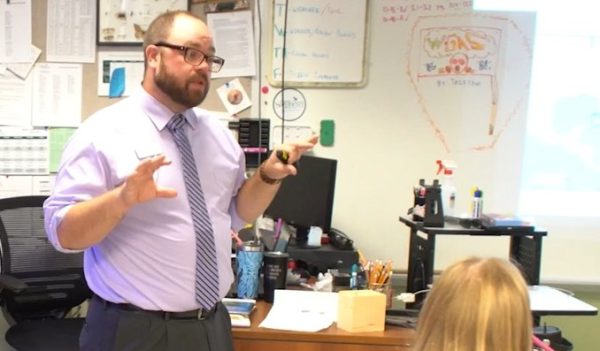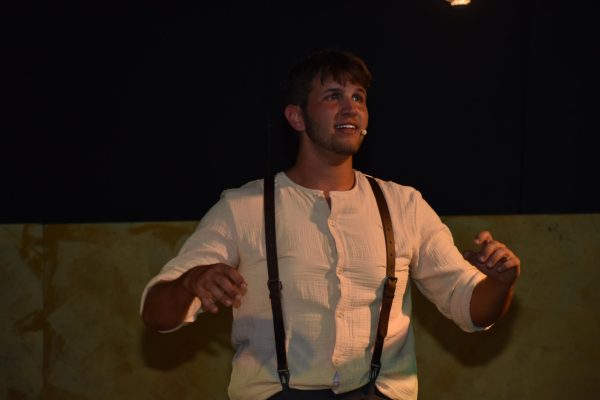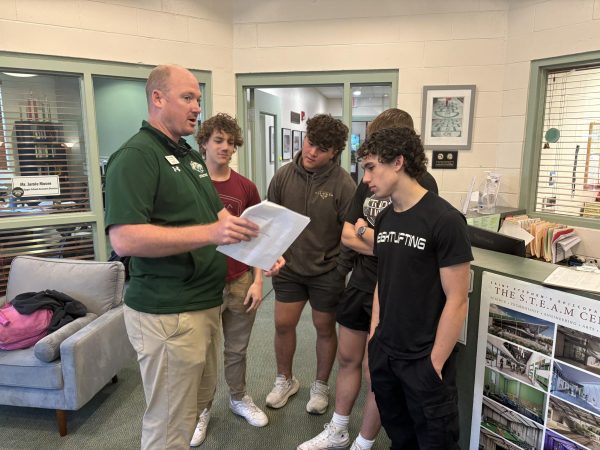My personal struggle with faith
When faith turned a cold shoulder, I was forced to find what I truly believe in: myself.
Not “belonging” to a faith can make you feel alone. You look around and everyone around you “belongs,” but you.
November 16, 2022
April 21st, 2015, was the day the world’s light dimmed. My world grew dark, and I felt like I was all alone in a vast universe. This is the day my grandpa died. I remember this day vividly; the sun was bright, I had just come off from a great day at school, but as I drew closer to my house, it felt as if I entered an alternate dimension. From out of the car window, I saw my house. A great, glooming cloud seemed to hover over it. After crossing the threshold between the outside world and my home, I immediately knew something was off.
I saw my mom and dad sitting in the living room– nothing– no movement, sound or emotion. They were numb, I ran to them, and then, my mom muttered words I’ll carry with me for the rest of my life: Bobbob didn’t make it.
These four words were enough to wreck my whole life. I felt like I was alone, no one to turn towards and no one to believe in. I looked around and the one anchor that I was supposed to believe in had let me down. I felt like God had abandoned me. I couldn’t comprehend how my “savior” could allow my grandpa to be away from me. I longed for an answer to one simple question: Why God? I screamed and lashed out in pain, yelling– cursing even– I couldn’t comprehend that the entity that was my savior abandoned the person I cherished the most in the world.
After my grandfather passed, I didn’t know what to do with my life. I had doubts about my faith and the one person I wanted to turn towards was gone. I was dreadfully distraught and lonely because the faith that I once believed in had let me down. Faith turned a cold shoulder and in the shadow lied my shattered self. I realized that I had to leave, leave the cold, unfeeling light of the shadow, and find something better for myself. And the only way to do this is to begin a different faith journey.
At the beginning of this journey I had to ponder: “Why did I leave my beliefs behind… What about my belief in God made me feel cold?” I felt called upon to do further research and I found something that struck me. In an article about the nature of faith, the Stanford Encyclopedia said that “At its most general form, ‘faith’ means the same as ‘trust,’” and after reading this, I realized why I had felt lost in my faith: it’s because I lost trust.
The experience of losing my grandfather changed the path of my life. I didn’t trust God anymore, and once this became clear, I reached an unknown frontier. Everyone around me had always been associated with a faith, so I knew something, some higher power had to be out there, but I didn’t know what. After some time, I realized the new frontier I ventured into was known as the land of agnosticism.
I had always identified as Christian; however, I was never an avid church-goer. I prayed and believed, but mostly I belonged to the community. I felt as if I was a part of the Christian community. Then, when I lost my trust, the community put forth the same cold shoulder I had felt once before. My friends who were avid christians isolated me. They joked, saying I would not have someone to turn towards, or that I just wanted to be “different.” I felt as if I was forced to stand in solitude with my beliefs.
I’m here to say it’s ok. I know that those are probably the last two words anyone wants to hear, but it’s true nevertheless. Not knowing your faith or not having a faith to turn to is just as acceptable and respectable as belonging to faith. For those questioning, it is ok not to know. You don’t need to “belong” to a faith to find trust.
After I told myself these same words of encouragement, I realized a principal facet of my faith journey was learning to believe in myself.
If you don’t believe that you can do all the things you’ve ever wanted to work towards, look inward. It may sound narcissistic, but the most life altering truth I have stumbled upon is this: I can do everything I ever want to on my own. I have the power within me to accomplish all my aspirations.
I don’t know what’s out there in this vast universe, but I do know one thing for sure: you are the only person who will always be with you. You are everywhere you go. You face your hardest challenges, you fight your most gruesome battles, and you clean your own wounds. You are the one person that will never leave your side when the going gets tough.
This is why you must believe in yourself; you can trust yourself. You can place your faith in yourself. You are the only one who will never leave your side.
Once I acknowledged myself as a support system, I felt as if I could accomplish more. The dreams that once seemed unattainable were now at my doorstep; all I had to do was believe in myself. This phenomenon is called self-efficacy. Self -Efficacy is the idea that, “People’s beliefs about their abilities have a profound effect on those abilities.” If you acknowledge that you can do something, it empowers you and gives you the means to accomplish your goals. Just by believing in yourself, you can change your own life.
All of this is not to say you should doubt your faith, but for all of you who don’t have faith to turn towards, know that you will always have yourself. Even if you do belong to a faith, learning to have self trust can enhance your life in immeasurable ways.
In my darkest hour I found myself and learned that the only person I needed to believe in was me.
I have faith in myself.




